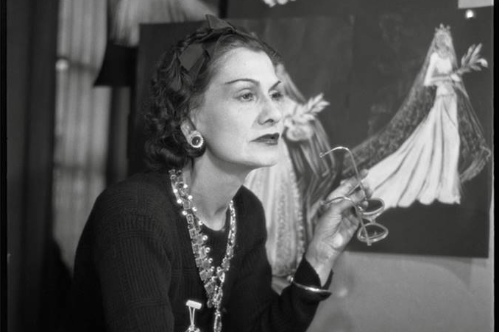Hidden gems shine bright


On the evening of Aug 4, an immersive small theater in a Beijing hutong hosted a play that explored themes of war, hunger, and the complexities of human nature. The play, titled Pure Land Temple, focuses on the fates of various characters during the An Lushan Rebellion in the Tang Dynasty (618-907).
Produced by an amateur theater group called 321, the play was performed by non-professional actors, including students, a journalist, a fashion designer, a veteran, and others from various professions.
Zhang Wanying, a 25-year-old from Jinzhou, Northeast China's Liaoning province, majored in broadcasting and television directing at university, but she has always dreamed of acting and is currently preparing for her third attempt to join the graduate program at the Central Academy of Drama in Beijing.
In Pure Land Temple, she plays one of the lead roles — a strong yet tender woman who is both a general's wife and a grieving mother who has lost her baby.
"Being on stage feels liberating and stress-relieving, like you can pour out all your emotions," she said about her experience that night.
The fact that the show is a commercial play has made Zhang even more excited. "I accepted the invitation without hesitation," she said, fully aware of how rare such chances are for an amateur actor. "You have to seize opportunities when they come."
Zhang describes her love for theater as "a steady stream of water".
She discovered her passion for imitating skits from the Spring Festival Galas during elementary school. Although she didn't study a related major in college, she never gave up and practiced acting on her own, even though opportunities to perform were scarce.
"Since my junior year in college, I have practiced lines for hours almost every day, including tongue twisters, dialogues, and monologues," Zhang recalled.
Pure Land Temple is her first real theater work, which she sees as her "substantial first step" toward becoming an actor.
Theater dreams
One of the goals of Theater Group 321 is to help talented amateurs grow into professional actors.
The group was officially founded last year by three young women. One of them is 26-year-old Lu Yimin from Shaoxing, East China's Zhejiang province, who is also the playwright and director of Pure Land Temple.
Lu primarily supports herself by writing scripts for TV dramas and scripted murder games, or jubensha in Chinese. However, the theater holds a unique significance for her — it is a place where she can "truly express her thoughts and ideas", even though the financial returns are minimal, and sometimes she has to invest her own money.
"Starting this theater group has given me a sanctuary in a busy society. Although it's small, it allows me to retain the copyright of my works and develop them into endless possibilities. Then, with friends who genuinely love theater, we bring these works to life. This sense of happiness and accomplishment is what I care about most," Lu said.
When professional actors face the financial pressure of earning a living, amateur actors can be a better choice for a startup theater group: one that offers little to no pay.
Despite the common bias that amateur actors are inferior to professionals, Lu disagrees. She believes that many non-professional actors can bring valuable life experiences and their own rich cultural knowledge to the table.
"Some amateurs have great potential; they just haven't chosen the path of being a professional actor," she said. "If things go well with 321, they could even become long-term resident actors while still maintaining their primary careers."
Her goal is for the group to eventually stand on its own, building a community of followers and an audience willing to pay for their performances.
"My teacher, who also runs a theater group, once told us that anyone running a theater group has to endure the initial dark times — usually about three years. If the group can survive this phase, it can establish itself," Lu said.
Universal stage
One theater group that has successfully navigated these early challenges and is now in its 17th year is Just Neighbors.
Having boasted thousands of members, the theater is currently the longest-running and largest amateur theater group in Beijing.
Zhang Peng, a professional playwright from Beijing, never expected that Just Neighbors would last this long when she founded it in 2007 because running an amateur theater group presents numerous challenges.
According to her, the amateur actors have their own jobs, making it particularly difficult to coordinate rehearsal times. Finding a venue is also a major issue. In a city like Beijing, where space is at a premium, securing a stable and affordable rehearsal place requires both effort and a bit of luck.
"I'm an optimistic person, and I tackle each problem head-on," Zhang Peng said. "I don't see the theater group as just an activity; it has become a part of me, like an organ or a hand."
For the past 17 years, except for natural disasters or unavoidable obstacles, Zhang Peng has been at the rehearsal space every single Saturday, always waiting for the other group members to arrive.
For her, theater is a way to get closer to one's true self. She believes that, as children, we all played house and took on different roles naturally. Acting is a part of our nature. However, as we grow older, societal expectations constrain us, and we start wearing more masks.
"In our theater group, we strip away these layers of disguise and uncover our instincts. For amateur actors especially, I emphasize acting from intuition rather than relying solely on technique," she said.
Theater is also a comprehensive form of aesthetic education. From Zhang Peng's observations, members who have participated in plays tend to develop a deeper appreciation for literature, music, and even their daily attire. Her vision for the future extends beyond Just Neighbors; she hopes that theater education will become as common as children's programming classes.
"What life owes you, theater gives back to you. People from all walks of life come to our group to perform, seeking to immerse themselves in someone else's stories and momentarily escape their own troubles. Theater is a form of salvation, a baptism for our ordinary lives," she said.
Passionate pursuits
Li Yuan, 23, from Xi'an, Northwest China's Shaanxi province, strongly resonates with Zhang Peng's perspective.
Now working as a copywriter at an immigration company, she joined Just Neighbors last summer right after graduating from university.
"Work can make people numb. Every time I see people crammed into the subway during rush hour, looking exhausted, I wonder, why are we working so hard for money? We need something in our lives that keeps us going. For me, that something is theater," she said.
In the nearly one year since she joined Just Neighbors, Li has performed in eight plays, taking on more than a dozen different roles — ranging from a virtuous wife to a rough-and-tumble female thug, a fantastical monster, and even a cross-dressing male judge — allowing her to experience a variety of different lives.
Li often becomes deeply immersed in her roles. She recalls a moment after one performance when she was walking home: "I felt as though I was strolling through the streets of old Shanghai in the early 1900s. Everything around me seemed to fade into black and white, and I was the only one in color."
Another theater enthusiast is Ge Sixiang, 23, from Beijing, who works as a research assistant at a medical institute.
When he first joined Just Neighbors last year, he had doubts about his acting abilities. However, within a few months, he had played the lead male role multiple times and had become known as the "pillar "of the theater group.
Beyond the highlights on stage, what Ge values most is the cohesion of the theater group — the way everyone "pulls together and focuses on pushing things forward".
"On stage, if I or my partner makes a mistake, we help each other instead of assigning blame. It's like we're all in the same small boat; if the boat starts taking on water, everyone bails it out together," he said.
In an amateur theater group, members often take on many tasks beyond acting, such as designing the stage, producing and playing sound effects, creating props, writing promotional materials, and managing audience WeChat groups.
From the moment he joined the group, Ge took on these roles and even taught himself to use multiple video and audio editing software programs.
"I spend most of my time outside of work in the theater. Unlike the stress and frustration of a regular job, working for the theater group — despite the intense and demanding tasks — fills me with a sense of purpose and love," he said.
guiqian@i21st.cn




































